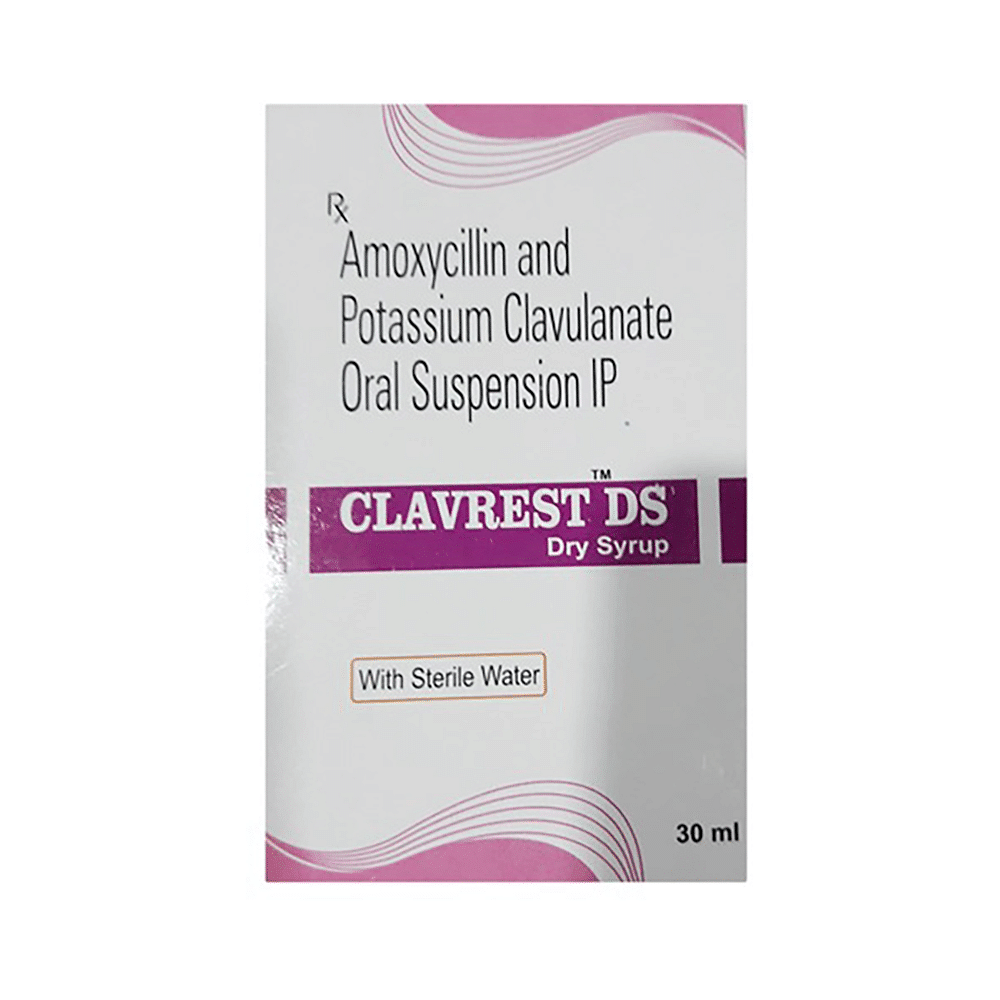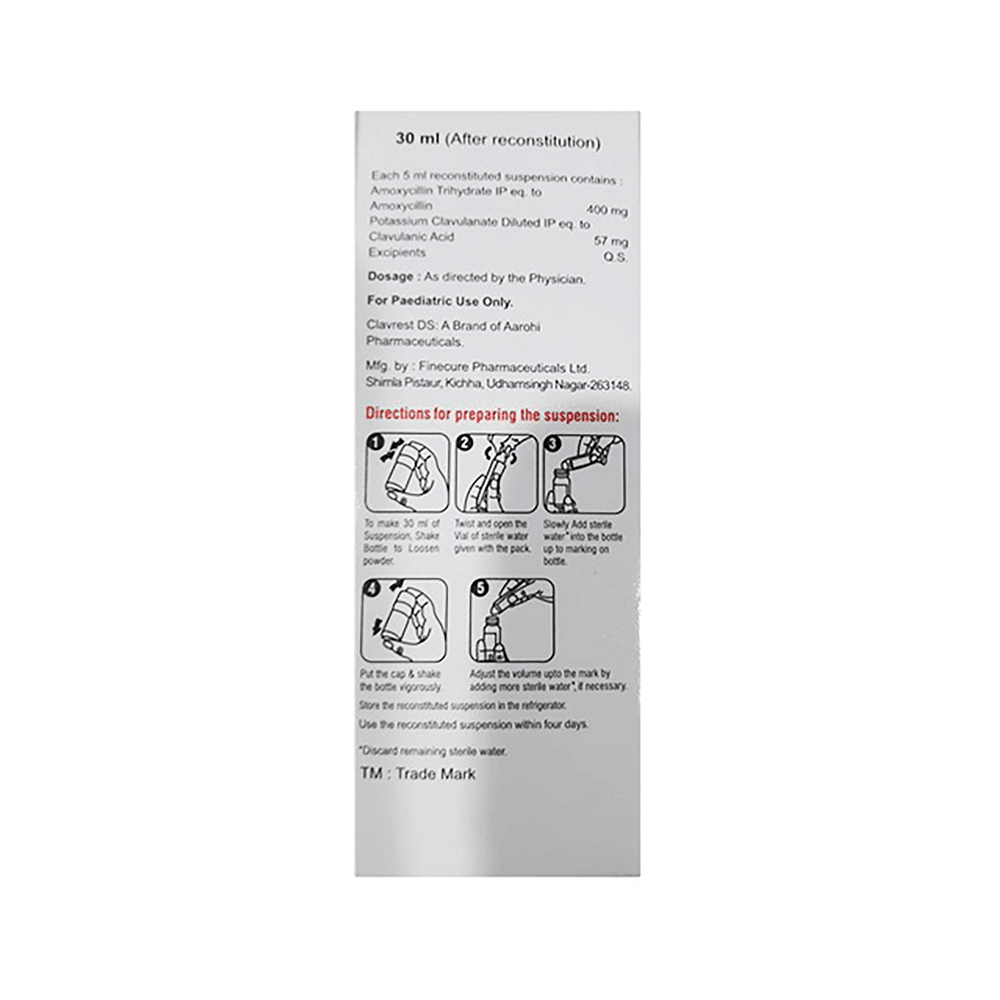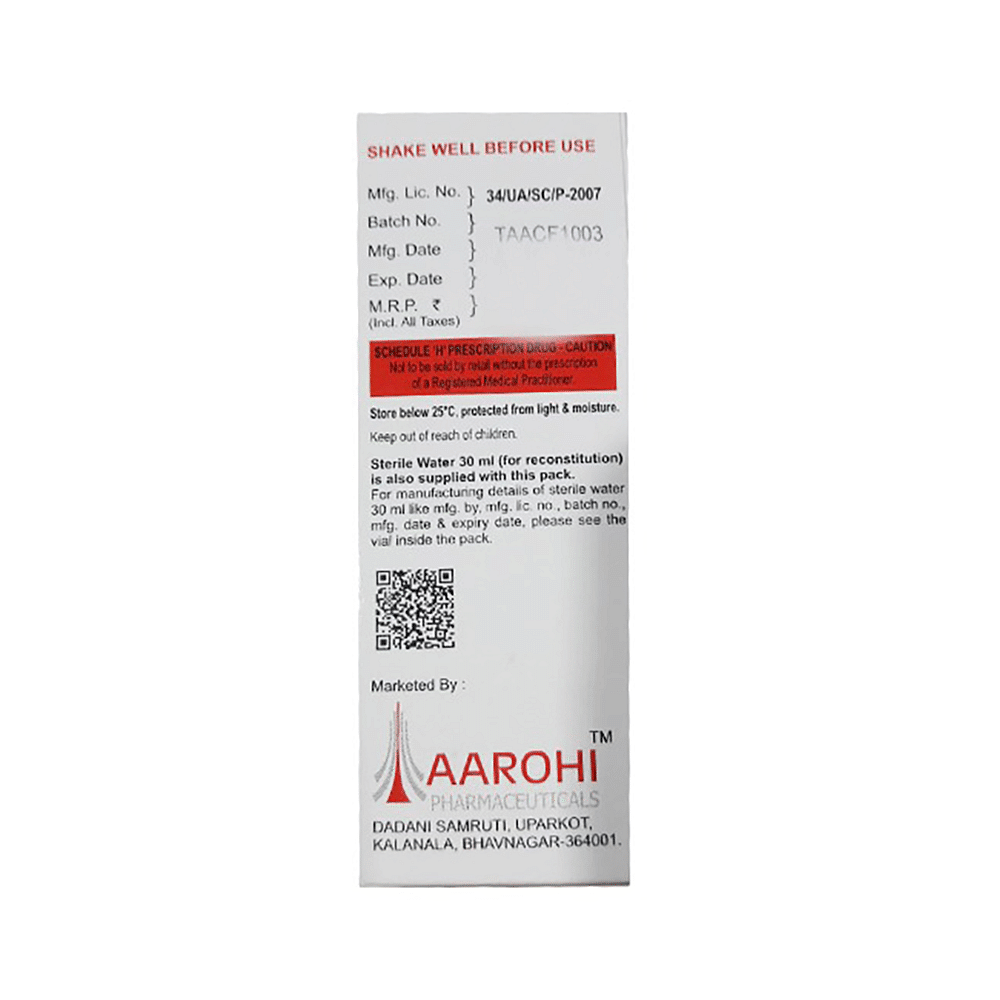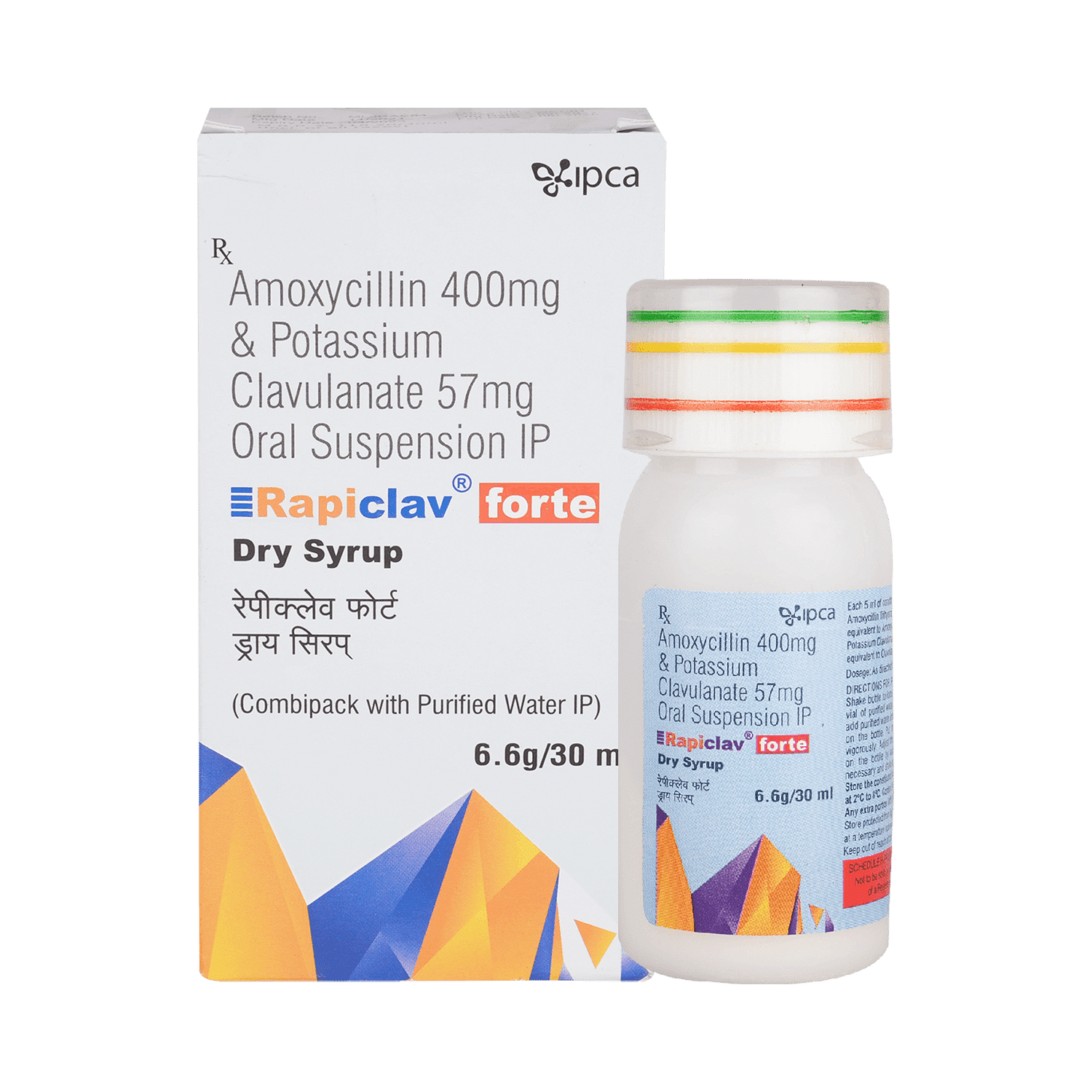


Clavrest DS Dry Syrup
Manufacturer
Aarohi Pharmaceuticals
Salt Composition
Amoxycillin (400mg) + Clavulanic Acid (57mg)
Key Information
Short Description
Clavrest DS Dry Syrup is an antibiotic medicine that helps treat bacterial infections of the ear, nose, throat, chest, lungs, teeth, skin, and urinary tract.
Dosage Form
Dry Syrup
Introduction
Clavrest DS Dry Syrup is an antibiotic medicine that helps treat bacterial infections of the ear, nose, throat, chest, lungs, teeth, skin, and urinary tract. It is capable of killing bacteria that have become resistant to other therapies and thus also helps treat tuberculosis that is resistant to other treatments.
Directions for Use
Your child must complete the entire course of antibiotics. Stopping too soon may cause the bacteria to multiply again or cause another infection.
How it works
Clavrest DS Dry Syrup is an antibiotic. It has two active agents amoxycillin and clavulanic acid. Amoxycillin works by preventing the formation of the bacterial protective covering (cell wall) essential for the survival of the bacteria. Whereas clavulanic acid serves a special purpose of inhibiting an enzyme (beta-lactamase) that is produced by resistant bacteria. This makes the combination of amoxycillin and clavulanic acid an effective line of treatment for many types of infections.
Quick Tips
Your child must complete the entire course of antibiotics. Stopping too soon may cause the bacteria to multiply again or cause another infection. Your child may have a bitter taste in the mouth after the intake of Clavrest DS Dry Syrup. Eating citrus fruit or sipping plenty of water or fruit juice may help. Encourage your child to drink plenty of water in case diarrhea develops as a side effect. Never give Clavrest DS Dry Syrup until and unless prescribed by the doctor. Do not give Clavrest DS Dry Syrup to treat common cold and flu-like symptoms caused by viruses. Never save medicine for future illnesses. Check ‘expiry’ before giving Clavrest DS Dry Syrup to your child. Immediately discard all the expired medicines. Stop Clavrest DS Dry Syrup immediately if your child develops an itchy rash, facial swelling, or breathing difficulty. Report to the doctor without any delay.
Related Medicines

Rapiclav Forte Dry Syrup

EL Clav DS Dry Syrup

Clawin Forte Dry Syrup

Oxylav DS Dry Syrup

Moxynip CV Dry Syrup

Codmox CV DDS Dry Syrup

Moxysung CV DS Dry Syrup

Augstar DS Dry Syrup

Amxclavin DS Dry Syrup

Moxynos Forte Dry Syrup
Frequently asked questions
Can other medicines be given at the same time as Clavrest DS Dry Syrup?
Clavrest DS Dry Syrup can sometimes interact with other medications or substances. It's crucial to inform your child's doctor about all other medications they are currently taking before starting Clavrest DS Dry Syrup. Additionally, consult with your child's healthcare provider regarding any other medicine administration.
Can I get my child vaccinated while on treatment with Clavrest DS Dry Syrup?
Antibiotics typically do not interfere with the ingredients in vaccines or cause a reaction in children who have recently received one. However, it's generally advised to hold vaccinations until your child fully recovers from the illness. Once your child feels well, they can receive the vaccine.
Which lab tests may my child undergo while taking Clavrest DS Dry Syrup on a long-term basis?
Over extended treatment with Clavrest DS Dry Syrup, the doctor may conduct periodic kidney and liver function tests to monitor your child's overall health.
Can I give a higher than the recommended dose of Clavrest DS Dry Syrup to my child?
Giving a dose higher than the prescribed amount can increase the risk of side effects. If your child experiences increased symptom severity, contact their doctor for re-evaluation.
Can I stop giving Clavrest DS Dry Syrup to my child when the symptoms are relieved?
Do not discontinue Clavrest DS Dry Syrup unless it's a complete course of treatment. Symptoms might improve before the infection is fully eradicated. Therefore, continue the prescribed duration as the medication may still be providing benefits.
Can the use of Clavrest DS Dry Syrup cause diarrhea?
Yes, Clavrest DS Dry Syrup can cause diarrhea in some individuals. It's an antibiotic that fights harmful bacteria. In addition to that, it may disrupt the balance of beneficial bacteria in your child's stomach, leading to diarrhea. If your child experiences diarrhea, encourage them to drink fluids like water or other drinks.
Do all viral common colds result in secondary bacterial infection?
Generally, bacterial infections do not occur alongside viral infections. In fact, using antibiotics in a viral infection can even increase the risk of side effects. Always consult your child's doctor before starting antibiotics.
The mucus coming out of my child’s nose is yellow-green. Is it a sign of a bacterial infection?
Yellow or green mucus in the nose does not automatically indicate a bacterial infection. During a common cold, mucus can thicken and change color from clear to yellow or green. Symptoms typically last for 7-10 days.
Is there any sign which shows that my child needs immediate medical attention?
Seek immediate medical attention if your child experiences serious allergic reactions (difficulty breathing, skin rash), gastrointestinal issues (diarrhea), or liver damage (weakness, paleness, vomiting). These side effects are rare but highly concerning and require prompt medical evaluation.


